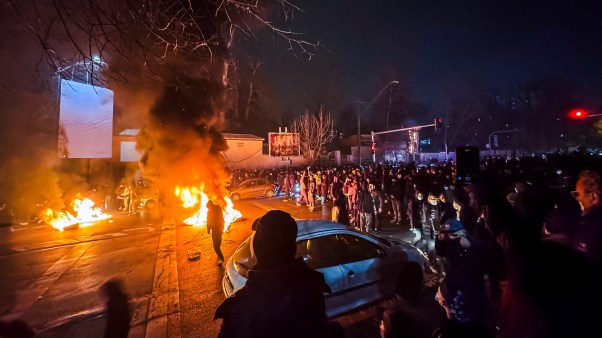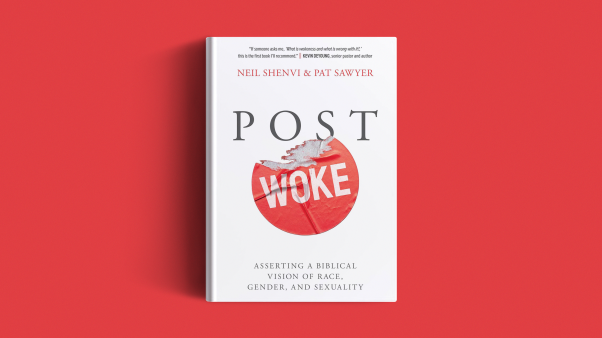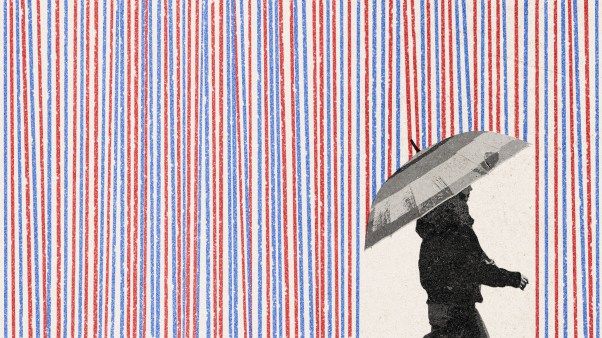Our Turkish-speaking drivers were taking us through the Fertile Crescent, that crossroads of great civilizations, but it did not appear very fertile. On this visit to eastern Turkey, religious freedom advocate Paul Marshall and I saw little cultivated land and a striking level of depopulation. We met the only two monks remaining in the monastery of the village of Sare (or Sarikoy). They were resigned, calm, and ready for the apocalypse.
Syriac-speaking Christians in this area have persisted through more than a dozen centuries of Muslim, Ottoman, and now Turkish rule. They languish between the secularizing government of the Republic of Turkey and an Islamic culture that views them as heathen outsiders. The government has long given them minimal “freedom of worship” while decisively restricting property rights for local congregations. Nor do authorities allow them any avenues of new growth—communication, speech, normal press freedom, or economic development.
Syriac-Aramaic comes as close as any living language to what Jesus spoke. It is the liturgical and poetic language of these Christians. Yet authorities forbid Christians on Turkey’s southeastern border with Syria, Iraq, and Iran to teach that language—nor can their schoolchildren learn any subject in it. Christians in Syria, by contrast, legally teach and worship in that language.
Besides the secular and Islamic opposition, modern forces also threaten. Dams for electric power and irrigation are filling up the great valley of the Tigris, threatening to submerge lands—including churches and monasteries—on which Christian families have lived for more than a millennium. In any case, as in the rest of Turkey, Christians cannot buy property.
In short, the government would be pleased to see the Christian communities quietly disappear altogether. Christians have been caught in the middle of a war between the government and the Kurds. Now it matters little to the government that the Hezbollah as well as the Kurds are harassing them.
Christians abroad, meanwhile, know little of their life-and-death struggle.
First Christian Generations
The Turkish government has told the Christian villages, in effect: You cannot have seminaries in your language. You cannot repair your churches. Or if you do, you must do it without any help and under local Turkish government surveillance.
Heirs of the ancient Chaldeans and Assyrians, today these Christians affiliate mainly with the Syrian Orthodox Church, with separate church patriarchates in Damascus: one Jacobite, the other Antiochene. The Christian population has dwindled to nearly nothing in villages that have called Christ Lord for well over 15 centuries.
No one doubts that there are viable arguments for continuity between these ethnic Syriac-speaking Christians and the earliest Christian beginnings. Before Christ, there were Jewish communities in this area in which the first generations of Christians eventually grew.
One of the major Christian centers of learning, hymnody, and monasticism during the fourth and fifth centuries a.d. flourished at Urfa, previously called Edessa (the ancient Haran). The fathers of the Edessa churches, along with their scholars, hymn-writers and poets, were lauded and quoted throughout the Christian world. By the seventh century, dozens of monasteries—some of them with up to 700 monks—covered the nearby hills. Few Christian families remain there.
In Nisibis (now Nusaybin), an ancient city in the upper Euphrates valley (on the river Djada), the Christian community dates back to the second century. A fourth-century church there was locked up and abandoned shortly after World War I, when the community fled south into Syria. For 60 years there had been no Christians in this church. Now the Syriac diocese has sent a Christian family from one of the surrounding villages into Nisibis. They live in a little apartment in the church and keep it from falling apart.
In the church crypt lies the tomb of Jacob of Nisibis, from whom comes the term Jacobite. Representing Syriac Christianity, he attended the Council of Nicaea in a.d. 325. Jacob was the teacher of the great poet, Ephrem the Syrian, whom John Wesley called “that man of the broken heart.”
This ancient church, once so important in Christian History, now sits alone in an entirely Muslim culture. I turned my gaze from the sarcophagus in the crypt to the richly decorated arches, then to the geometric design on the lectern. Marshall, a Senior Fellow at Freedom House’s Center for Religious Freedom, stood with me by the silent crypt of this deserted church dating back to a.d. 359.
Suddenly, our driver broke into song, an ancient hymn of the church. His voice was strong and sure, filling the empty stones with a flood of music, without being prompted.
We asked him what the words meant. He said the lyrics came from the great Ephrem:
Listen, my chicks have flown,
left their nest, alarmed
By the eagle. Look,
where they hide in dread!
Bring them back in peace!
This church had nurtured Ephrem, the greatest of the Syriac theologians. After being expelled from Nisibis, he spent the last 10 years of his life (363-73) in exile in Edessa (Urfa).
The Nisibis church and others in the area deserve to be introduced to the rest of the world. Yet they remain virtually inaccessible. Christians especially should have the opportunity to understand the area’s history, poetry, liturgy, and the early growth of monasticism here.
An armed group, the Hezbollah, still operates in the area. This is not exactly the same Hezbollah that operates in the Middle East but is related to them. It has frequently attacked Christian villages in these areas and sought to drive them out. There may be only a few thousand Christians left in southeastern Turkey.
Caught in a Vise
This community is coming to a decisive moment: either great courage or complete collapse. Some sense of solidarity with the outside Christian world would help. Their plight cries out for understanding by art historians, museum curators, theologians, political scientists, and sociologists, as well as concerned laypeople.
If Christians abroad began to take an active interest in them, either through business enterprise or by visiting, empathizing, and getting to know them personally, the balance could shift. The displaced Christians of Upper Mesopotamia who are now in Europe might begin to come back. That could encourage economic development.
The aggressive campaigns of the ministry of tourism notwithstanding, the Turkish government has grossly neglected these ancient Christian sites. The tourist literature nowhere mentions them. Instead, the government has supervised the demise of numerous Christian villages or passively watched them deteriorate.
Yet encouraging the government to develop area tourism would likely be more persuasive than moral arguments for freedom of religion. Some churches here have remained in use largely without interruption since the fourth century. As Freedom House’s Marshall remarked, this whole area is a museum—an ancient Christian museum.
The possibility of a new wave of tourism appears very remote without encouragement from Western political, academic, and church interests. Through a kind of passive-aggressive neglect, the government denies access to all except those with insider connections. If I were a Muslim, I would be encouraged to go on Hajj to Mecca. But if Christians want to go to Nisibis, someone with a badge is standing in the path, saying, “Show me your invitation.”
Eastern monasticism, music, liturgy and theology thrived here and spread to much of the remaining Christian world. These sites contain a precious heritage that belongs not just to the Turkish government. It belongs to Christians everywhere.
Thomas C. Oden is a CT executive editor. For more information on the area and on relief efforts, contact the Syriac Orthodox Archdiocese of the Western United States, 417 E. Fairmount Rd., Burbank, CA 91501.
Copyright © 2003 Christianity Today. Click for reprint information.
Related Elsewhere
AllAboutTurkey.com has a page on the history of Christianity in the country.
The International Turkey Network has information on references to Turkish land in the Bible.
The 2002 International Religious Freedom Report for Turkey said that the Government imposes some restrictions on religious groups and on religious expression.
More Christianity Today articles on Turkey are available in our World Report archives.










